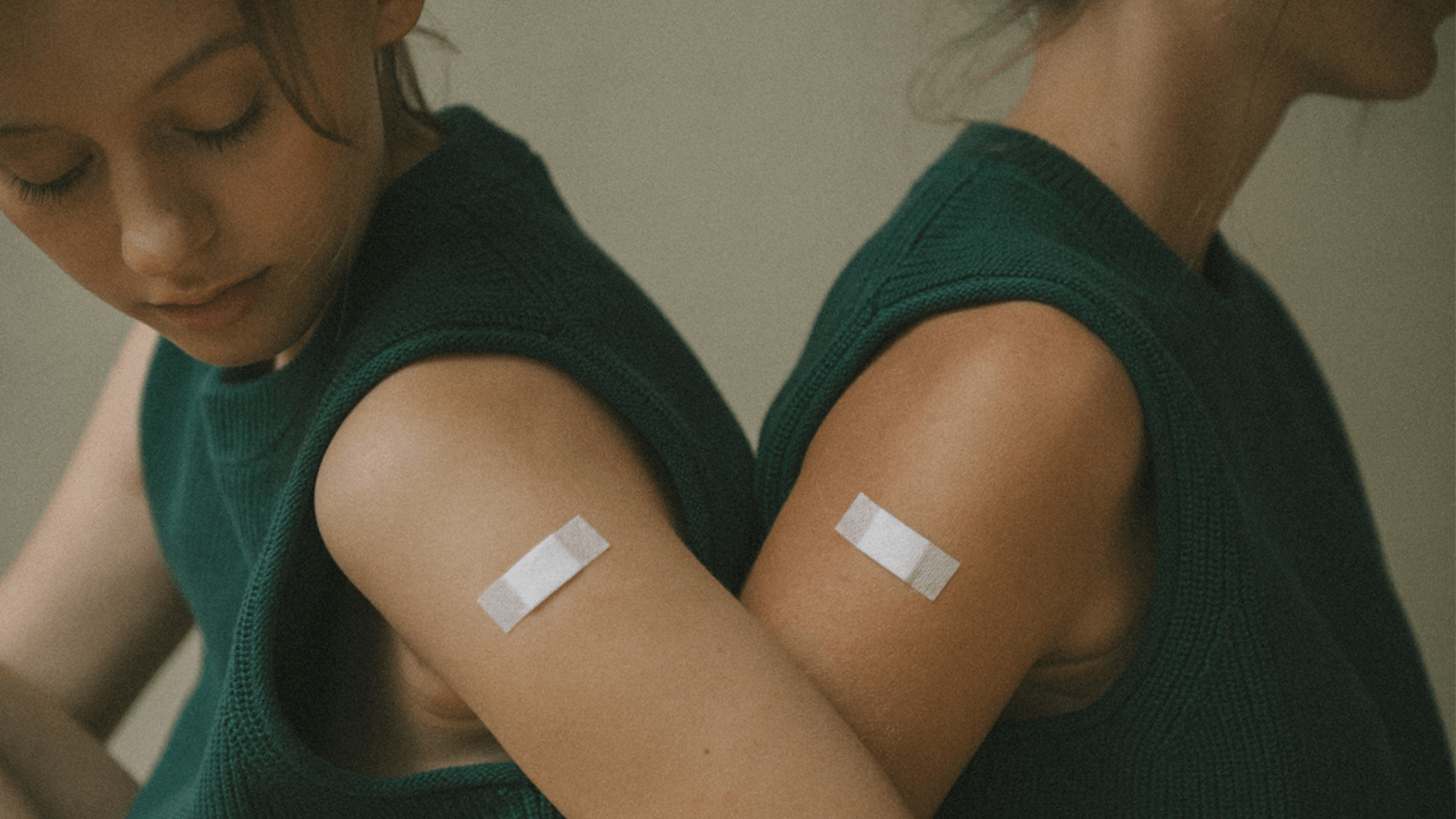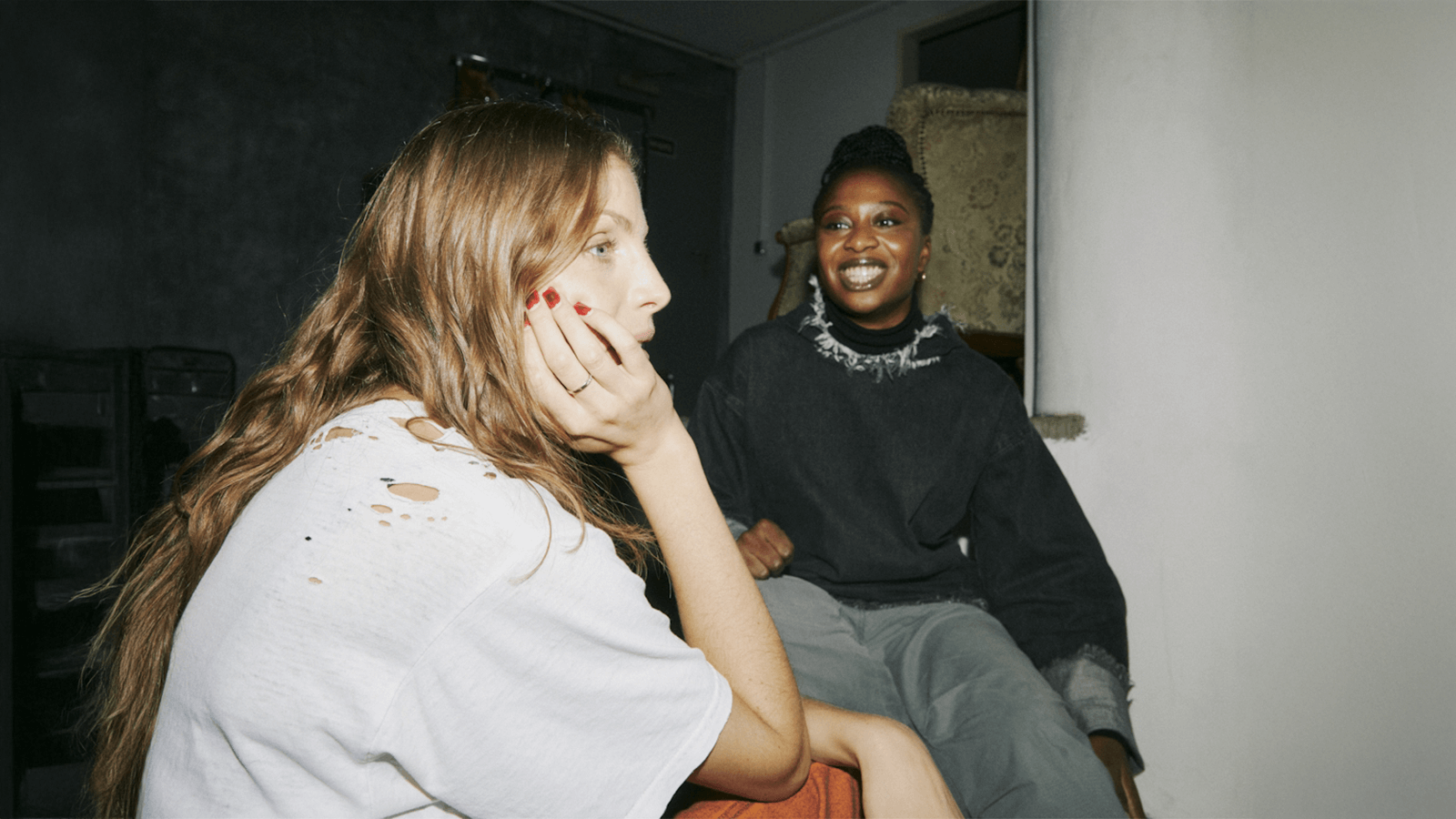The Gender Health Gap, Costly Care & Medical Gaslighting: Why So Many Women Are Turning To Self-Diagnosis
When I was 13, searing cramps started to descend with the arrival of my period. I’d miss school, keeled over in bed with bullets of cold sweat slicking my pyjama top to my back, telling my mum that if a hysterectomy was the only option, that would be OK (I was an avid Grey’s Anatomy fan). When we went to the GP, she gave me prescription-strength painkillers, but the possibility of an underlying cause went unmentioned. Yet the pain continued (to varying degrees), courteously on time every 28 days.
I can’t remember exactly how I came to my self-ascribed diagnosis: whether it was via independent sleuthing or health activists’ Instagram infographics, but when I was 24, I settled on the likelihood that I had endometriosis, a condition that causes the lining of the uterus to grow elsewhere in the pelvis. Finally, last April – aged 28, years after sharing my theory with the GP and languishing on the endometriosis waiting list – I was conveyed into the mouth of a whirring MRI machine, and my self-diagnosis proved correct.
My experience didn’t occur in silo. Over the past few years, the hashtag #selfdiagnosisvalid has gained traction online, with (predominantly women) social media users lamenting their inability to procure a diagnosis they believe they meet the criteria for. “It feels like I’m being gaslit,” proclaims 36-year-old South African creative Candice Erasmus, who’s been grappling with unexplained weight gain, severe abdominal pain, emotional nadirs and long stretches without a period for the past two years. “There’s just been no sense of urgency and trying to help me get some respite or some answers,” she says of her doctors’ lax approach. So, she began researching her symptoms and diagnosed herself with polycystic ovary syndrome (PCOS), a hormonal condition that affects around one in 10 women. If she’s right, she won’t be the only sufferer who’s been left in the dark: 70% of women with PCOS remain undiagnosed worldwide.
For Erasmus, her self-diagnosis felt validating – especially as she’s still not had an official medical diagnosis: “At least when I’m looking and researching and I’m understanding these women on forums… what I’m experiencing is there and it’s written down,” she says.
“Patients themselves are going to be their greatest advocates,” reflects Mary Ebeling, a professor at Drexel University who’s done extensive research into self-diagnosis. “They’re advocating for themselves and their own health, and in using something like TikTok or the internet to try to find other patients that have similar symptoms, they’re finding community.”
The rise of women turning to self-diagnosis is likely a consequence of the gender health gap, a glaring discrepancy in medical funding and treatment between men and women. A US-based McKinsey report in 2020, for instance, found that a mere 1% of healthcare research and innovation was invested in women-specific conditions, bar cancer, while in the UK, women are 28% more likely to wait more than four months for NHS treatment. And the chasm is wider for Black women: in the US, 19% say negative experiences with healthcare providers made them less likely to seek care, and Black women in the UK are three times likely to die due to pregnancy-related causes.
For many, a formal diagnosis is simply unaffordable. “Many online communities exist where women who lack time, financial means or are otherwise marginalised by the healthcare system can seek information and support,” explains Deborah Lupton, a professor in the Centre for Social Research in Health at UNSW Sydney.
And there are other, more sinister agendas that could be fuelling the rise of self-diagnosis. “In the United States, a lot of the driving forces behind online self-diagnosis are driven primarily by marketing,” explains Ebeling. She is, of course, referring to pharmaceutical companies, who have a lot to gain from heightening the profile of treatable conditions – a tried-and-tested practice known as disease awareness marketing.
“They’ve transferred that strategy to places like TikTok, and they do it through what are called ‘patient influencers’, in a similar way that there are social media influencers that promote cosmetics,” she explains. Through this, they “shape the self-diagnostic environment to come to one solution, and that would be the branded drug”. (In the US, marketing prescription medication directly to the public is legal.)
Of course, the drawbacks of self-diagnosis extend well beyond big pharma. Misdiagnosing yourself is easily done, and can incite needless anxiety: haven’t we all found ourselves knee-deep in webMD, convinced that the end of our time on this mortal coil is fast approaching? On the flipside, misguided conclusions can cause people to disregard warranted concerns. As such, Lupton stresses that self-diagnosis is not something to roll the dice on when it comes to potentially life-threatening conditions – particularly based on an internet riddled with misinformation.
Yet one must only look towards Act Up, the grassroots political organisation who saved countless lives by making early AIDS drugs more widely available, and the Black Panthers, who screened thousands for sickle cell anaemia through community organising, to be reminded that marginalized communities advocating for their health can be a powerful, positive thing. This time, it’s women’s health on the line. Had I not arrived at my GP with a microscopically researched theory, I might still be battling eye-rolls – my histrionics rendered a mere performance in the eyes of cynical bosses, friends and partners.
The key things I’ve learned in my own self-diagnosis journey are to only base your research on reputable sources, to present your findings backed up by as much evidence as possible to a medical professional – and to maintain a healthy skepticism of medical capitalism.
“There are great benefits to people having some kind of power and control over how they define and give meaning to the embodied experiences they’re living through,” says Ebeling. “That’s a really empowering thing. It’s just that we always have to be conscious that there’s someone behind who [could] potentially exploit and financially benefit from that.”
Juno Kelly is an editor and journalist focused on internet culture, social commentary, and profiles. Her work has appeared in The Cut, The Fence, LOVE Magazine, and more




